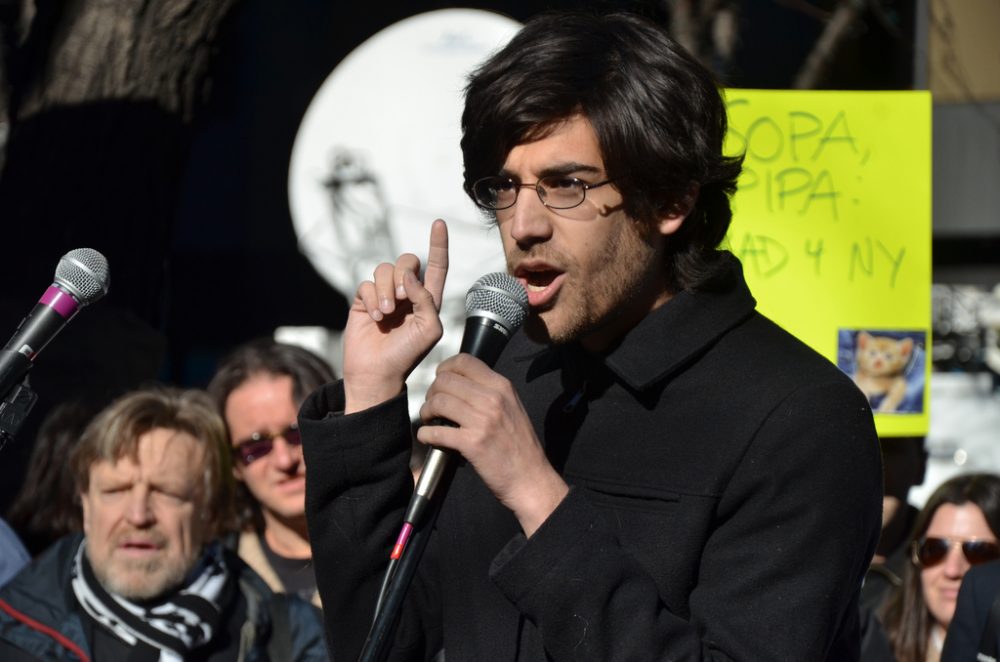Advertisement
Robert Swartz Remembers His Son Aaron
Resume
One year ago this week, 26-year-old Internet activist Aaron Swartz took his own life as he awaited a trail in federal court on charges of computer hacking. Swartz faced more than three decades in prison if convicted on charges that he used MIT's computer networks to copy millions of articles from a paid academic journal service.
Critics called the government's prosecution excessive and said MIT didn't do enough to protect Swartz from federal charges. A review by MIT found that the school had stayed neutral during the proceedings.
Guest
Robert Swartz, father of Aaron Swartz.
More
WBUR: Prosecution’s Case Against Swartz Draws Scrutiny
WBUR: Aaron Swartz, Reddit Co-Founder And Online Activist, Dies At 26
Interview Highlights
On what lessons we can learn from this anniversary
"I think the lessons that we learn are that the criminal justice system is broken and that there is, in the United States, no presumption of innocence when over 90 percent of the cases which are brought, people plead guilty — of the cases that go to trial over 90 percent result in convictions. It cannot be that all those people are guilty. I think the other lesson is that MIT needs to change the way that it handles these kinds of things. That the criminalization and the likelihood of bringing in federal authorities for things which, in the past would have been handled internally, is enormously greater and the incredible punitive fashion of the criminal justice system has this ability to destroy people's lives. And that Aaron, who had immense resources, couldn't fight against it. And the question is, what happens to people who have substantially less resources, who get entangled in this system? And MIT's argument that it was neutral — MIT was not neutral, MIT should have advocated on Aaron's behalf."
On whether MIT betrayed Aaron
"I wouldn't use the term 'betrayed Aaron.' Because I think what happened is much more complicated than that. But I think that they did not show compassion or sympathy or concern in this instance and that they did not act properly in what they did. And that they have not taken responsibility for their actions."
On coming back to MIT on a monthly basis
"MIT is a wonderful place and I love MIT and I enjoy the people I work with and I very much enjoy the work I do there. There are lots of wonderful people at MIT and I respect that. There are other parts that certainly provide much more difficulty for me, and the place is filled with memories of Aaron and that makes going there very difficult. It's very mixed in the sense that there are aspects of what I do that I enjoy immensely and there are aspects of being there which are incredibly painful and, emotionally, extremely difficult."
On where we stand in terms of open access to information
"I think there's been some very positive things that have occurred. I think that what the U.S. government has done with respect to open access is significant. I think more universities are putting more things off, I think there's clearly a move to open access. On the other hand, I don't think anywhere near as much — I think the movement is very slow and nowhere near as much material has been made available. It doesn't make sense that we as citizens pay for this work and large entities like Elsevier make billions of dollars on it. It's not like Disney or Time Warner where it costs a lot to produce this stuff and people need to be compensated for it. The authors of academic journals don't get compensated for their work, they don't get compensated for their editing and the cost of putting these journals out is quite small but these large corporations are using them as a monopoly power to make monopoly profits. And that really hasn't changed substantially, and so we need to do immensely more to change that."
On what more could have been done for Aaron's case
"There's no question that one can always do more. And that one never does enough. There always are things that you think about that you could have done. Did I try as hard as I knew how? Yes. But did I try hard enough? Of course not."
This segment aired on January 9, 2014.